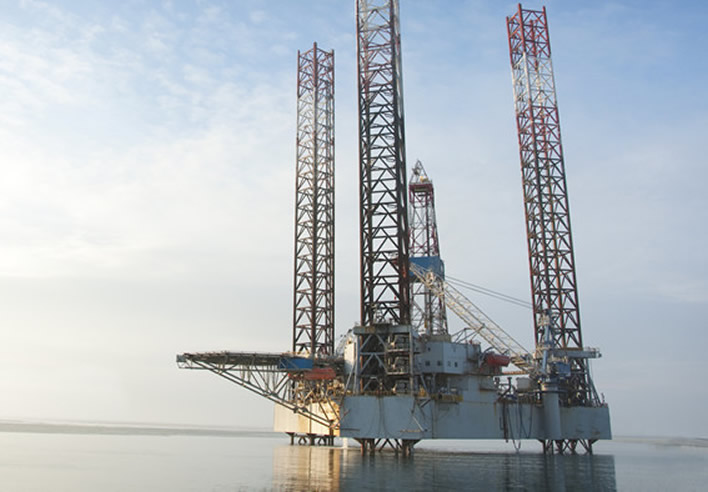In this article, Japheth Omojuwa x-rays the oligopolistic structure of the Nigerian gas industry, highlighting ways in which the super majors – a handful of large and powerful multinational oil and gas firms – have dominated the market, at the expense of progress in Nigeria’s energy and power sectors.
In June 2016, Nigeria’s Federal Government through its Department of Petroleum Resources announced that the nation’s gas reserves had increased from 186 trillion standard cubic feet (scf) to 190 trillion scf. According to data from the United States’ Energy Information Administration for April, a thousand cubic feet of gas costs $3 in April of 2016. That would put Nigeria’s extra 4 trillion standard cubic feet at $12billion. For perspective, that is about 40% of Nigeria’s total budget per year over the last few years. Nigeria is so gas rich that its petroleum endowment feels like a drop in the ocean. Nigeria is the ninth most endowed gas nation in the world and number one in Africa. There is no hiding the potentials for economic development and fiscal stability accruable to Africa’s biggest economy from profitable exploration of natural gas. But for more than four decades Nigeria has failed to turn its gas potentials into tangible prospects for true economic liberation.
Considering the plummeting crude oil business, natural gas could easily replace crude oil and also act as a backup plan for a country whose sole economic derivative remains earnings from oil sales. But this is currently not the case as the inefficiencies that turned petroleum wealth into a national curse are somewhat inherent in the gas sector.
Nigeria produces about 1.35 tcf of dry natural gas annually, ranking among the world’s top 30 largest natural gas producers. Sadly, natural gas production in Nigeria is constrained by the lack of infrastructure to monetise the natural gas that is currently being flared. Notwithstanding, with the ease and relative cost effectiveness of electricity generation from natural gas, Nigeria lacks the infrastructure needed to achieve this common feat. The deplorable state of infrastructure in Nigeria is one of the greatest barriers to achieving stable electricity. Another barrier is policy inconsistencies, which has been the bane of the Nigeria Electricity Supply Industry (NESI) for far too long.
Investment in gas stations is the way to put an end to the incessant power supply in the country and of course proper policies that will guide the power sector should also be enacted to ensure a smooth running of existing and additional infrastructures. As much as gas may not be the sole generator of electricity in Nigeria, its huge deposits, if properly utilized will output at least a 30% alleviation of Nigerians out of darkness while other viable sources of energy are explored.
In addition, the country has not been able to benefit optimally from export of gas through the West African Gas Pipeline (WAGP) due to the activities of vandals. Despite the constraints militating against the attainment of a stabilized and maximum use of natural gas, the potentials still abound way beyond our immediate and domestic perception.
Nigeria currently exports most of its natural gas output via the West African Gas Pipeline (WAGP), which began commercial operations in 2011. This pipeline venture is operated by the West African Gas Pipeline Company Limited, which is owned by a consortium of Chevron, Shell and representatives of interests of Nigeria, Ghana, and a few other African countries. Essentially, a consortium of major oil corporations run an oligopoly in exploration, production, distribution and marketing of Nigeria’s gas deposits. By so doing they have managed to stifle the growth and efficiency of the entire natural gas sector at great economic costs to the country.
The dominance and monopolization of the natural gas industry apart, the legal framework in Nigeria also poses a barrier to the effective and maximal profitability of the sector. Uncertainty around legal and regulatory framework has always been the bane of development of Nigeria’s gas sector. In 2008, the Federal Government of Nigeria initiated The Petroleum Industry Bill (PIB), to re-organise the oil and gas industry, re-structure the Nigeria National Petroleum Corporation (NNPC) and codify new fiscal terms governing the oil and natural gas industry.
Up to this moment, the Bill is yet to be passed into law due to different, valid and invalid, objections to some of its provisions by various interest groups. The interest groups involved are concerned that proposed changes to fiscal terms may make some projects commercially unviable, particularly deep-water projects that involve greater capital spending. The uncertainty created by the non-passage of the Bill has dampened enthusiasm and interest in investment in the gas sector. Even the bill did not offer much promise with respect to the gas sector as the Petroleum Industry Bill lived up to its appellation by having gas relegated to its addenda, more or less. As the Buhari government moots three new bills to replace the much troubled and controversial PIB, one would expect that the gas sector would get a treatment, independent of the petroleum sector. This is so that Nigeria does not again end up relegating a major source of foreign exchange and energy development to the shadows of a petroleum sector that appears doomed to continue to plummet in value in the global market. The much-touted Gas Master Plan that was meant to usher in a new, profitable and prosperous regime of gas production has since disappeared off the radar of national conversation, you’d have been excused to think there were no such plans in the first place.
The existence and non-market friendly activities of super majors in Nigeria’s gas sector and the resultant oligopoly have made the sector permanently unattractive to other investors. This has effectively shut the door against direct foreign investments into Nigeria running into hundreds of billions. For Nigeria this is a double jeopardy. The inability of major multinational companies to invest in the budding natural gas industry has resulted in consistent under-performance of the sector in GDP terms. So the country not only loses money directly but this also results in the happenstance that the entire economy of the nation is made to look unattractive to would-be investors. Also it means that locally available benefits accruable to the populace from the growth and expansion of the gas sector remain locked up as nothing but mere potentials.
Nigeria, currently with a total output of 3,000 MW as at the second week of August 2016, needs at the very least 50,000 MW for the actualization of the lofty target of being one of the top 20 economies in the world by 2020. A major component of such ambitious energy growth within such short space of time is the proper and effective harnessing of the country’s gas potentials. However, the presence of super majors in the sector has hampered all prospects for the profitable utilization of gas distribution channels for electricity generation.
Stunted economic growth, billions lost as foreign direct investment, capital flight, and entrenched structural and commercial inefficiency are high up there with the hampered electricity generation as the cost Nigeria is currently paying for the tolerance of the voltron-esque monopoly of super majors in the gas industry. The existence of a healthy corporate competition is an integral and essential part of the market structure of any progressive economy. The non-existence of competition on an equal-level playing ground in Nigeria’s gas sector has so far resulted in nothing but increased redundancy and decreased efficiency. The influence wielded by the super majors is a hindrance to the achievement of a competitive market, which in turn cripples the chances of maximizing the potentials natural gas offers.
To tap the potentials of the massive gas deposits Nigeria is endowed with and convert the potentials from same into concrete gains for the economy and people, the institutionalization of an open market system is non-negotiable. Prospective business entities should be given an equal playing field alongside the big wigs in the industry to create a growth-fostering and efficiency-driven atmosphere of healthy competition. Then and only then can Nigeria fully utilize the potentials in gas domestically and locally before there can be any attraction to foreign investors or export.

Japhet Omojuwa is a foremost blogger, speaker, socio-political commentator, think tank and social media expert. Founder of the popular blog www.omojuwa.com, he is one of the voices in Nigeria that drives social change through social media.




